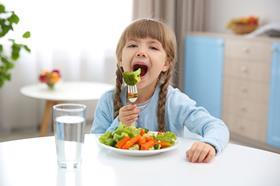
Eurostat has today (5 January) released a report indicating that only 12 per cent of Europeans over the age of 15 are eating at least five portions of fruit and vegetables per day.
According to Eurostat estimates, 55 per cent of the EU population are eating between 1-4 portions and even 33 per cent of the population over the age of 15 are not eating any portions of fruit or vegetables at all.
The report shows that women eat more fruit and veg than men, as 15 per cent of women reach five portions compared with only 10 per cent of men.
The current EU average, calculated by the Freshfel Consumption Monitor, is 350g or about four portions on average.
Reaching at least the recommended 400g per day by adding one piece of fruit or vegetables to the daily diet of European consumers should be the target and would boost EU fresh produce market by 15m tonnes.
“Despite these low levels, the fresh produce sector has many reasons to be optimistic considering the assets of fresh fruit and vegetables,' said Philippe Binard, general delegate of Freshfel Europe.
'The sector needs to unite forces to influence a policy shift resulting from the Farm to Fork strategy, aiming at a more plant-based diet and from the EU beating cancer plan, calling for more prevention where a healthy diet based on fruit and vegetables has an important role to play against cancer but also against non-communicable disease,” he continued.
'The pandemic has also significantly changed the lifestyle of Europeans, in addition to increasing their sympathy towards environmental causes and climate change. So the sector has many positive drivers for 2022.”
Freshfel Consumption Monitor showed huge consumption level differences across the EU member States. Eurostat confirms this analysis among the countries with consumers eating at least five portions of fruit or vegetables per day.
The Freshfel Europe Consumption Trends Workshop of 16 December highlighted that despite these differences, consumers across Europe all care for taste, freshness, vitamins and minerals, added value, convenience and seasonality.
Based on the fresh produce assets, the sector would have to position itself in the food assortment to convince new consumers to buy more fruit and vegetables, Freshfel outlined.
Philippe Binard reminded the conclusions of the December workshop. “There is a clear consensus on the benefits to 'Act Now', which was one of the mottos of the International Year of Fruits and Vegetables 2021,” he said.
The fruit and vegetable sector should capitalise on the policy and societal momentum to stimulate the consumption of fruit and vegetables with a lot of legitimate ambitions in 2022, for the benefit of the planet, the climate, and the health of the consumers themselves, he explained.
'Freshfel Europe will work actively in 2022 towards new opportunities for the sector, not only following a Farm to Fork strategy but also and importantly from a Fork to Farm perspective,' Binard added. 'The sector should work collectively to listen and meet the diversity of consumers' expectations to supply products according to their preferences, purchasing and eating habits, always caring for high quality, great taste and texture , freshness and convenience.”



